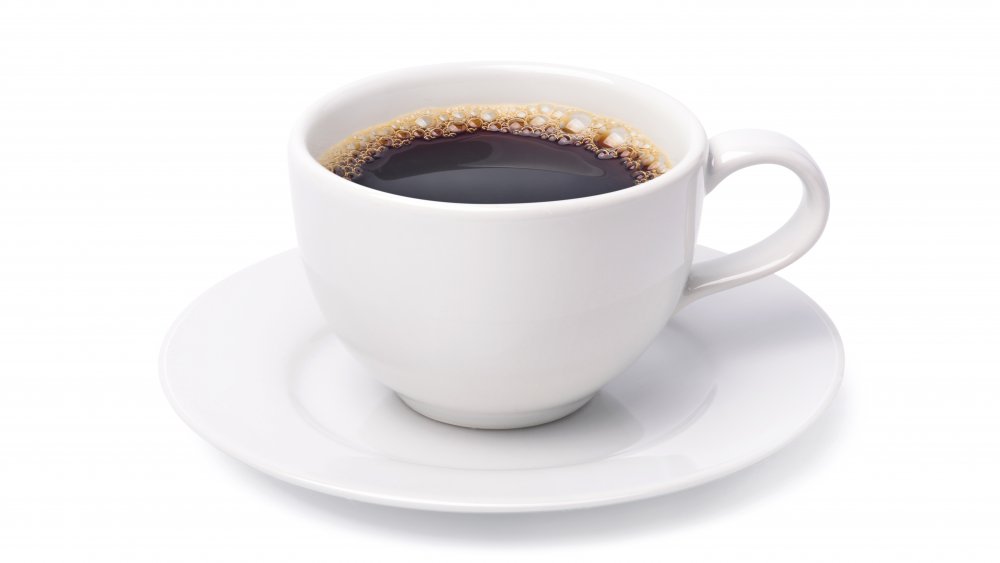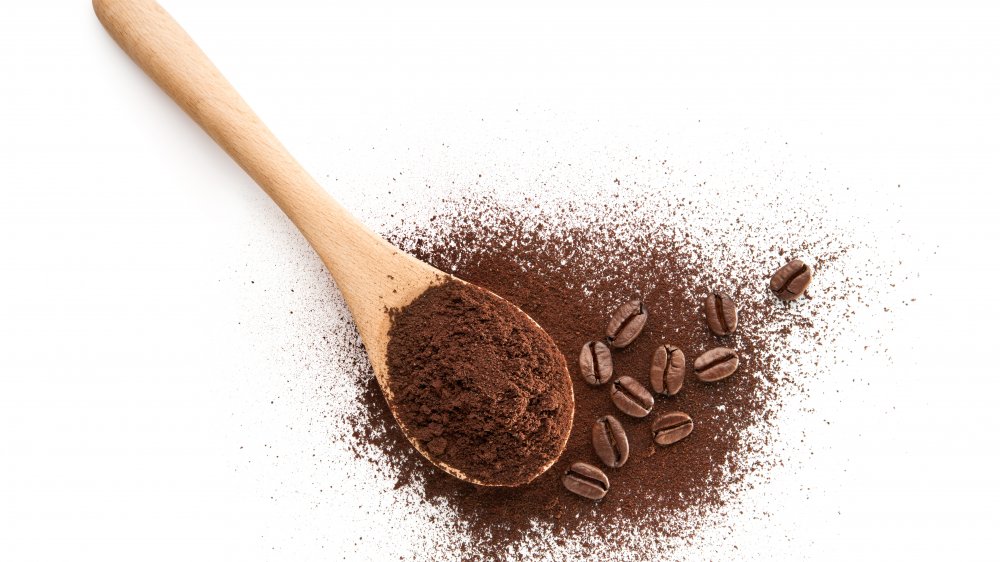The Real Reason Instant Coffee Has Less Caffeine Than Regular Coffee
Not all coffees are caffeinated equally. There's the obvious difference between regular and decaf, but did you know that regular instant coffee contains less caffeine than its brewed counterpart? But just what is instant coffee? If you're over 40, you might recall your parents or grandparents having a can of Sanka or a jar of Folger's Crystals in the cupboard. Before there were Keurig pods and a Starbucks on every corner, instant coffee was the solution when you wanted a quick cup of joe. Just add a teaspoon of the granules to boiling water, stir, and enjoy.
Instant coffee is manufactured by brewing coffee into a liquid concentrate, then removing the water content by freeze-drying it or through a process called "spray drying," whereby the liquid coffee is sprayed as a fine mist into a hot "drying chamber." The mist falls to the floor of the chamber and dries into coffee powder (via Kitchn). In either scenario, the process creates a product that has a long shelf life and can be restored to its drinkable form by adding water. But how does this affect caffeine content?
Caffeine is lost in the process
Coffee loses some of its caffeine content in the process of becoming coffee powder. Some loss happens during dehydration. It also occurs when instant coffee is produced using the spray-drying method, as the high temperature of the drying chamber (480 degrees Fahrenheit) eliminates more of the caffeine (via Chemical & Engineering News). Other factors that impact caffeine levels include how the coffee is brewed, the variety of beans, and its maturity.
So what is the caffeine difference? Instant coffee has about two-thirds the caffeine content of fresh-brewed coffee. One 8-ounce cup of brewed coffee contains about 96 milligrams of caffeine, while its instant counterpart has just 62 milligrams per cup (via Mayo Clinic). If you're looking to cut back on your caffeine intake, switching to instant is one way to do so. The chief criticism of instant coffee is the flavor, which just isn't as rich and robust as brewed coffee. However, as a new "third wave" of coffee makers, such as Alpine Start, revisits instant coffee in search of a better brew, it might be worth another try (via Food & Wine).

